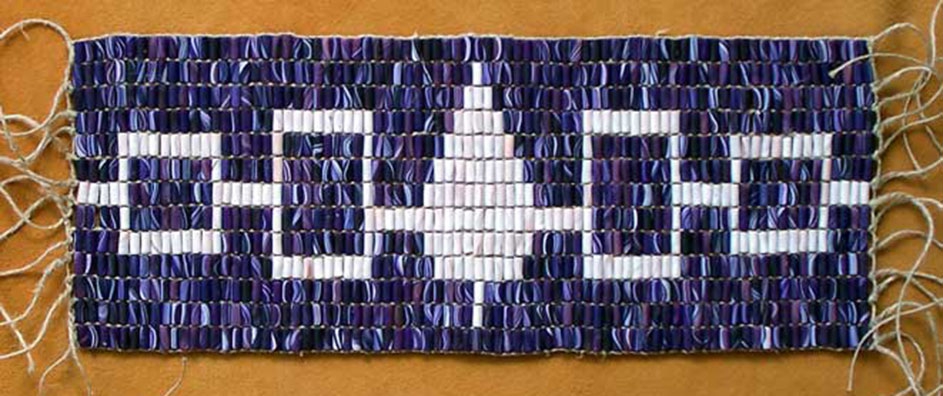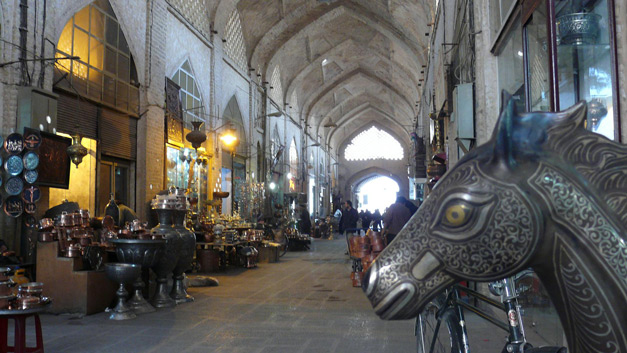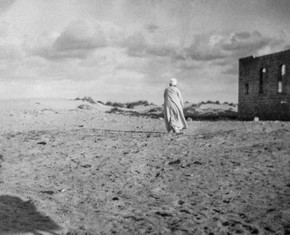The views expressed in our content reflect individual perspectives and do not represent the authoritative views of the Baha'i Faith.
One of the primary principles of the Baha’i Faith, expressed in many places in the teachings, holds that God leaves no person or culture bereft of spiritual guidance:
God is kind to all; He is the giver of bounty to all alike, even as Jesus Christ has declared that God “sendeth rain on the just and on the unjust”—that is to say, the mercy of God is universal. All humanity is under the protection of His love and favor, and unto all He has pointed the way of guidance and progress. – Abdu’l-Baha, The Promulgation of Universal Peace, p. 142.
So did God send Prophets and Messengers to the Native Americans and Native Canadians? Yes, according to their own sacred traditions, as kept by their respective (and respected) Elders.
If you are interested in learning more about the heritage of The Great Peacemaker, who was responsible for bringing peace to the Iroquois (Haudenosaunee, “People of the Longhouse”) Nations, watch this video entitled Peacemaker courtesy of Historica Canada.
But what do the Baha’i Writings have to say about that? Are they in harmony with Native American and Native Canadian perspectives?
Let’s explore these important questions by looking at the following brief “Tablet” from Abdu’l-Baha. These tablets, usually in the form of short written responses to questions posed by Baha’is, came from Baha’u’llah and Abdu’l-Baha, and often illuminate subjects not explicitly covered elsewhere in the Baha’i writings.
First, let me introduce the person who asked the questions about Messengers of God sent to America. During the time of Abdu’l-Baha, there was a Baha’i named Amir Khan Ahan. In Persian, “ahan” means “iron.” According to Dr. Iraj Ayman, Amir Khan owned a shoppe at the beginning of Naser Khosrow Street in Tehran. This store had a sign in front that read, “Maghazih Ahan.” (In Persian, “maghazih” means “shoppe.”) So Amir Khan’s store was called the “Iron Shoppe” (that is, a crafts shoppe and hardware store), which made him known in Tehran as Amir Khan-i-Maghazih Ahan. Renowned as an inventor, Amir Khan actually traveled to Russia, as well as to parts of Europe, where he sold some of his inventions. Amir Khan also met Abdu’l-Baha in the Holy Land.
Amir Khan received a famous tablet from Abdu’l-Baha in response to his questions asking for advice on which of several arts and crafts to pursue. Abdu’l-Baha advised Amir Khan to concentrate on one pursuit and to perfect his mastery over that craft–otherwise his talent and energies would be spread too thin. Dr. Ayman, as a youth accompanying his father, met Amir Khan on a number of occasions. According to Dr. Ayman, Amir Khan was full of fascinating ideas and constantly making new devices and solving technical problems.
So here’s a “provisional translation” of ‘Abdu’l-Bahá’s Tablet to Amír Khán: Complete English translation (part authorized, part provisional), with original Persian/Arabic text and transliteration, in three-column chart:
Provisional translation:
O servant of God! Thou hadst complained about (thine) inability to attain perfection in more than one craft. A multiple number of crafts causeth (one’s) perceptions to become scattered. Endeavor in one of these crafts and strive and exert thyself to attain perfection therein. This is better than having a number of crafts (all) remain in a state of imperfection.
Authorized translation:
In ancient times the people of America were, through their northern regions, close to Asia, that is, separated from Asia by a strait. For this reason, it hath been said that crossing had occurred. There are other signs which indicate communication.
As to places whose people were not informed of the appearance of Prophets, such people are excused. In the Qur’án it hath been revealed: “We will not chastise them if they had not been sent a Messenger.”1
Undoubtedly in those regions the Call of God must have been raised in ancient times, but it hath been forgotten now.
1
Qur’án 17:15 (Additional Tablets, Extracts and Talks)
Provisional translation:
I will supplicate God to confirm thee in attaining perfection in one of the crafts.
And upon thee be greetings and praise.
We don’t have access to the original letter, but based on internal evidence, it appears that Amir Khan had asked Abdu’l-Baha four questions:
1. How can one become more skillful in arts and crafts?
2. Did the ancestors of Native North Americans cross over the Bering Strait?
3. What is the fate of people who do not know of God’s latest messenger?
4. Were Messengers of God sent to North America?
In the next article in this series, we will look at these questions in more detail.
For those who read Persian, the Tablet to Amir Khan is published in its entirety in Muntakhabátí az Makátíb-i-Ḥaḍrat-i-‘Abdu’l-Bahá, volume 6 (Hofheim: Mu’assasi-yi Maṭbú‘át-i-Bahá’í-i-Álmán, 161BE/2005), pages 177–178. (Courtesy of Omid Ghaemmaghami, PhD.) To download a copy of this Tablet in the original Persian, please click the link at the end of this article.
In closing, I’d like to thank my dear wife of 30 years, Nahzy Abadi Buck, for introducing me to Abdu’l-Baha’s “Tablet to Amīr Khān,” shortly before we were married in North Vancouver, British Columbia. It’s one of the many reasons why I fell in love with her.
Printed version of Tablet to Amir Khan in Persian
Facsimile of original Tablet to Amir Khan in Persian
©2014 by Christopher Buck.
You May Also Like
Comments


















My intention in making this comment is to clear up any doubts that may have come about as a result ...of reading the English translation.